
GOLD Lactation Online Conference 2022
The GOLD Lactation Online Conference is the largest Annual Breastfeeding Conference in the world. Our conference for 2022 is packed full of fascinating topics such as rethinking the way we fit flanges for pumping, vestibular processing and using the sixth sense to support breast/chestfeeding, eating disorders in the perinatal period, lactation after bariatric surgery, low milk production detective work, examining real world scenarios for WHO code compliance, supporting parents with physical, mental or socioemotional differences and so much more! Join speakers Melissa Cole, Jeanette Mesite Frem, Evelyne Ruf, Indira Lopez-Bassols, Julie Matheney, Stacy Davis, Christine Staricka, Dyah Febriyanti, Andini Pramono, and so many other amazing minds for what promises to be a thought-provoking conference that will expand your knowledge and skills!
Closed Captions
Please note that English and Spanish Language Closed Captions are available for presentations. To enable Closed Captions for any of our recordings, please hover your cursor over the video player to find the "CC" button on the bottom right corner that gives you language options.
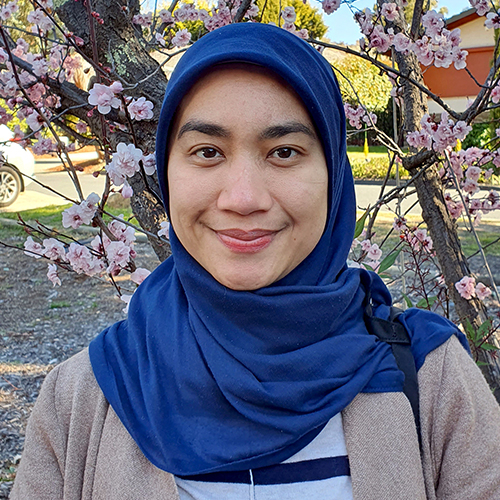

Andini has bachelor and master degree in public health, majoring in hospital administration. She is an IBCLC and is currently undertaking PhD at the Australian National University. Her PhD thesis is looking at the facilitator and barrier of Baby Friendly Hospital Initiative implementation and accreditation in Indonesia and Australia. One part of her PhD was measuring its social value using Social Return on Investment.
Her journey began when she was pregnant with her first child, then found and attended full series of Indonesian Breastfeeding Mothers Association (AIMI)'s breastfeeding classes. She then decided to volunteered as breastfeeding counselor at AIMI.
With her work experience in hospital management consulting for 8 years and personal experience when her breastfed son undertook open heart surgery, she realized that not every hospitals provide adequate education and support for breastfeeding mother, either since pregnancy, during and after birth.
Andini was awarded Deeble Summer Research Scholarship from Deeble Institute for Health Policy Research Scholarship Program of Australian Healthcare and Hospitals Association (AHHA) in 2020 and published a Health Policy Issues Brief titled "Improving the Uptake of the Baby Friendly Health Initiative in Australian Hospitals" as the outcome. Thanks to her supervisor, Andini involved in working group for Breastfeeding Friendly Workplace Accreditation at ANU in 2018-2019 and involve in WBTi Australia since 2019. Currently living in Canberra Australia, Andini has been providing breastfeeding education and assistance for Indonesian mother-student, students' wives or any Indonesian women who live in Canberra.
1. Explain the difference between the 1989 and 2018 Ten Steps to Successful Breastfeeding.
2. Describe the cost implications of the changes to diverse stakeholders.
3. Describe the benefit implications of the changes to diverse stakeholders.
In 2018, the World Health Organization (WHO) issued the first revision of the 1989 WHO/UNICEF Ten Steps to Successful Breastfeeding. Revisions are subtle, yet meaningful for implementation. A major change made by WHO is subdividing the Ten Steps into 1) critical management procedures, and 2) key clinical practices. Lessons have been learned on how the change has shifted the focus from health care staff to parents and families and shifted the responsibility for some elements of care from hospitals to the community. In this presentation, we will compare 1989 and 2018 Ten Steps, and explore its cost and benefit implications for diverse stakeholders, such as healthcare professionals, parents, family and government.
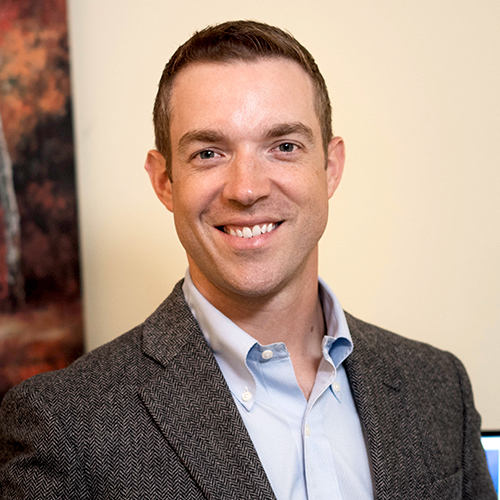

Dr. Andrew Dorough is a native of St. Louis, Missouri. He attended Westminster College in Fulton, Missouri, and graduated with a Bachelor of Science in biology. He then earned his Doctor of Chiropractic Degree from Logan College of Chiropractic in St. Louis, Missouri. He later earned a post-graduate certification from the International Chiropractic Pediatric Association (CACCP). He is qualified to deliver highly skilled and safe treatment to pregnant and postnatal patients and to neonatal and infant patients. Dr. Dorough enjoys providing collaborative care. He currently works in a family medicine clinic which boasts a breastfeeding medicine physician IBCLC, along with other IBCLCs, two nurse practitioners and a physician assistant. He assesses and treats infants with various forms of structural issues, including but not limited to cranial bone deformation (plagiocephaly), torticollis, and tongue and neck dysfunction, as related to feeding difficulties and infant well-being.
Topic: Collaborative Care With a Chiropractor for Infant Feeding Dysfunction - [View Abstract]
1. List potential causes and contributing factors of neonatal/ infant head, neck (spine), and soft tissue restrictions as it relates to feeding dysfunction.
2. Describe asymmetries and dysfunctional movements in an infant. This will suggest how body mechanics can be contributing factor to feeding dysfunction.
3. Explain the role, safety and efficacy of chiropractic care for collaborative management and treatment of infants with feeding dysfunction as it relates to their inability to transfer milk.
Evidence suggests that trauma during pregnancy, labor and delivery may be a contributing factor to soft tissue and joint restrictions that affect an infant’s inability to latch and effectively transfer milk. How can lactation and medical experts identify the signs of dysfunctional movements that contribute to feeding dysfunction? To what extent can chiropractic care, within a collaborative model, safely and effectively help to correct feeding dysfunction? This session will enable attendees to elicit a more careful history, and to notice often overlooked signs that cannot be resolved with better breastfeeding management, but rather, indicate referral to a pediatric chiropractor.
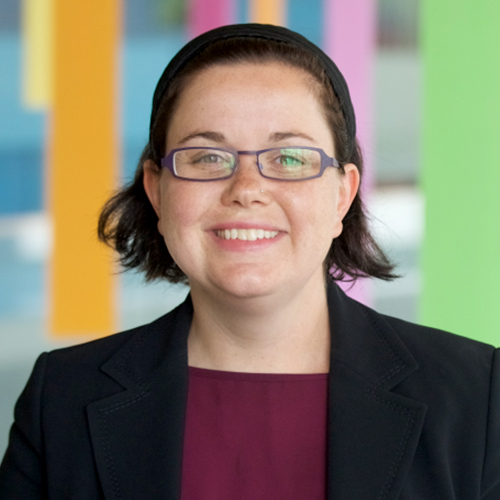

Anya Kleinman is a general pediatrician who works at Akron Children's Hospital in Akron, Ohio caring for the range of patients from birth to late adolescence. She uses her IBCLC expertise to counsel new parents and promote breastfeeding in the ER.
1. Describe both common and dangerous pathology in the newborn and postpartum period.
2. List red flags in the history and the physical exam of the infant-mother dyad that require immediate medical assessment.
3. Describe clinical questions to be used when evaluating patients for evolving postpartum complications.
IBCLCs, often with limited education in newborn medicine and obstetrics, care for the infant-parent dyad within the context of a complex healthcare system staffed by providers with variant training in breastfeeding medicine. This is an interaction filled with knowledge gaps and fraught with the possibility for misunderstanding and dangerously missed diagnoses. I plan to combine my training in general pediatrics and my clinical experience as a pediatric ER physician with my IBCLC training. I will teach conference participants about medical emergencies when caring for the breastfeeding newborn and the post-partum parent so that they can recognize clinical scenarios presenting to their care that require immediate medical assessment. The presentation will focus on high-yield topics in newborn medicine and postpartum obstetrics to deepen the IBCLCs recognition and ensure appropriate ongoing care for common and life-threatening complaints. It will include a discussion of neonatal jaundice, neonatal fever, severe weight loss, pyloric stenosis, congenital birth defects and genetic disorders; the lecture will also address postpartum depression, post-operative infections, and postpartum preeclampsia. Armed with this understanding of clinical red flags, IBCLCs will be empowered to better care for their breastfeeding patients, while also understanding when immediate medical assessment is imperative.
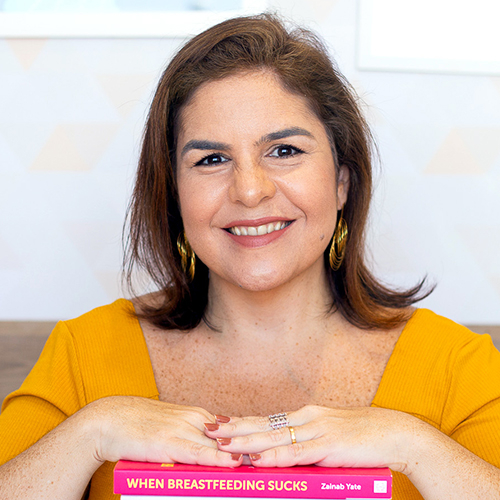

Bianca Balassiano has been working with families in private practice since 2008 as an IBCLC and perinatal psychologist/maternal-child health specialist. As a natural consequence of her professional background, has supported breastfeeding families into achieving individual goals while maintaining mental health and stimulating a holistic look towards the subject. Since 2014 is also working as an educator for healthcare professionals in one of the most recognized breastfeeding courses in Brazil, currently offering virtual classes and all over the country. Lives with husband and two children in Rio de Janeiro, Brazil. In 2020, she launched her first book aimed at families with the title "Gradual Weaning: How to Bring Your Breastfeeding Story to a Happy End".
Topic: Lactation After Bariatric Surgery: Physiological, Hormonal and Psychological Implications - [View Abstract]
1. Describe the impacts on health during pregnancy and lactation after bariatric surgery.
2. Describe the clinical implications for breastfeeding after bariatric surgery, especially the physiological, hormonal and emotional aspects.
3. Explain how bariatric surgery may impact milk supply and composition of human milk.
With the increase in the prevalence of obesity internationally, the world is turning its attention to effective forms of treatment. As a result, surgical techniques are increasingly being used in an attempt to ensure weight loss, reduction of comorbidities and hormonal balance in young patients of childbearing age. However, as a restrictive and disabsortive surgery, its impacts on pregnancy, childbirth and postpartum outcomes have been increasingly studied closely. Scientific studies provide substantial data on lactation after bariatric surgery, with common outcomes such as greater use of supplementation, less exclusive breastfeeding, shorter duration of breastfeeding and a higher rate of nutritional and vitamin deficiencies. Less studied, however, are its emotional effects on the lactating person, as well as the impacts on body recognition and the difficulties in dealing with the new morphological breast/chest configuration. Therefore, it is essential that the health professional who is dedicated to working in support of breastfeeding is specially trained to support families for the proper management of breastfeeding in the presence of substantially increased risks, as demonstrated after bariatric surgery.
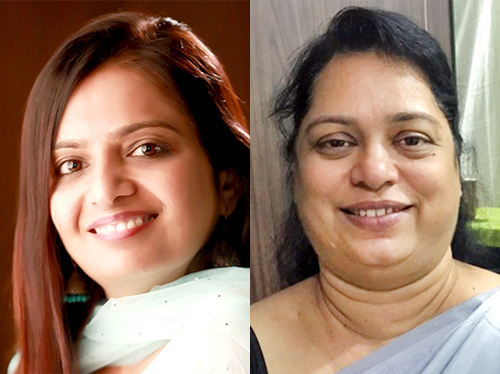

Dipti Shah is a Mother Support Group Leader - Lactation Counsellor since 1998 & Lactation Consultant since 2010. She was trained by BPNI Maharashtra Faculty & has been providing Lactation Counselling services in multiple Institutional Hospitals & small maternity homes in Mumbai for over 2 decades. She has wide experience in community advocacy & Individual Counselling in indoor, OPD, home and online settings. She is senior trainer for BPNI Maharashtra & participated as faculty in over 100 workshops in Seven States of India & for 5 batches of ’96 hrs of Lactation Specific Education’ for IBLCE preparation (2010-2021). She mentored many Lactation counsellors and consultants. She is a BFHI Assessor since 2001 & has trained two groups of ‘Traditional Massage Women’ in basics of infant feeding and childcare. She has extensively contributed to multiple training modules, presentations & videos for BPNI Maharashtra & Maharashtra Government & UNICEF. She is also office coordinator of BPNI Maharashtra since 2004. She participated in Expanded Global Breastfeeding Partners Meeting (GBPM) of WABA at Penang, Malaysia in 2010. She was felicitated with ‘Dr N.B. Kumta Award’ in 2016. She exclusively breastfed her son for 6 months and continued well into 2nd year.
Ruth Patterson is Cloud Nine's P I O N E E R & most sought Lactation Specialist with 32 years of rich experience. Ruth is currently practicing at Jayanagar C9, Bangalore-India and a visiting Lactation Consultant with 8 other Cloud Nine branches locally, while als heading the 22 Pan India Cloud Nine Hospitals as the Manager Lactation. Ruth's primary role is to ensure C9 nurses complete level 1 and level 2 LSTP course (Lactation Skilled Training Program). Ruth is acclaimed for the use of Dynamic Taping (only available at Jayanagar C9) that arrests/prevents breast surgery/abscess. This Dynamic Taping practice, alongside, a Gynecologist, Pediatrician and Physiotherapist at Cloud Nine, is now under patent stage.
Ruth's 30+ years of rich experience includes maternity, allied health and nursing care, both in rural and urban sector in India & Abroad. With Exclusive 17 years of experience in Lactation services, Ruth has acquired immense practical knowledge in the last decade to identify most critical disorders of mother and babies during breastfeeding stage. Ruth is acclaimed to have expertise in a lesser-known art of re-lactation and induced lactation.
Ruth is a well sought out person for patient hearing and provides her expert comments in News columns/Media and also delivers guest lectures globally.
1. Describe strategies for convincing management of the dire need to appoint a dedicated Lactation Consultant/Counselor in any maternity set up.
2. List the areas where a Lactation Consultant/Counselor can focus to improve the breastfeeding practices in a Private/Corporate maternity set up.
3. Explain the management strategies required to improve the breastfeeding practices in a Private/Corporate maternity set up.
Lactation Consultants/Counselors are the emerging professionals in developing countries like India. Breastfeeding practices are still heavily influenced by traditions and often left to the expertise of elders in the family. Many health care providers are unaware of the emergence of Human Lactation Management as a science & the availability of experts in their vicinity. Most maternity services do not have a dedicated Lactation Consultants/Counselors. Even where such facility exists, there is a lack of management strategies to improve & sustain breastfeeding rates & outcomes. This presentation will help Lactation Consultants & Counselors learn how to convey to management that there is a need for a Lactation Consultant/Counselor to set up the administrative strategy and protocols for ensuring things like early initiation of breastfeeding, exclusive breastfeeding, prevention and prompt treatments of breastfeeding problems, post discharge follow-up and care, monitoring of breastfeeding indicators, maintaining BFHI status and regular and ongoing training of staff to build adequate knowledge and skills.
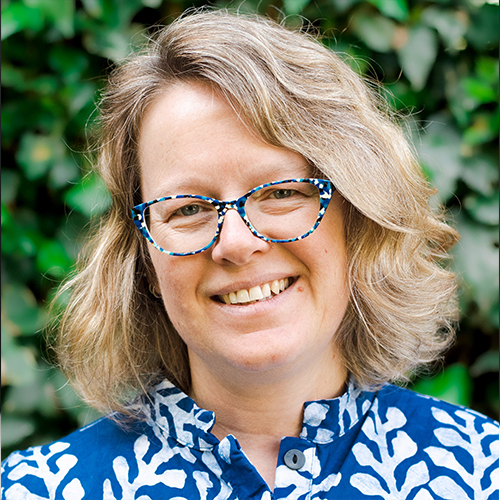

After a career as a primary school teacher and Deputy Headteacher in central London, Emma trained with the Association of Breastfeeding Mothers, qualifying as a breastfeeding counsellor with them in 2007 and continuing with them as their trustee and chair. Emma first qualified as an International Board Certified Lactation Consultant in 2011. She has supported families at groups in North London for 14 years as a volunteer and has a small private practice. Her book, “You’ve Got It In You: a positive guide to breastfeeding” was followed by “The Breast Book: a puberty guide with a difference – it’s the when, why and how of breasts” (published by Pinter and Martin). Her articles have been featured in print and online including on the UNICEF UK Baby Friendly Initiative website. Her article, 'The dangerous obsession with the infant feeding interval' is her most popular. She has two children and lives in London.
1. Describe how one's own attitudes about natural term breastfeeding might impact a client's care.
2. Describe key evidence about the value of continuing to breastfeed an older child.
3. Describe common issues that arise with positioning and attachment when parents are feeding older children and how they can be addressed.
4. Explain some of the common challenges that families continuing to breastfeed face.
This session focuses on supporting parents who are breastfeeding/chestfeeding beyond 12 months. Many of us live in countries where breastfeeding beyond 12 months is not the norm. When it does happen, it may not happen openly. Parents are often feeling increasingly isolated and may be dealing with lack of support from family and friends. There can be further challenges such as new issues with positioning and attachment, conversations with employers and health professionals, dealing with family break-up and thinking about new pregnancies. Parents continuing to feed older children may not always feel able to reach out to local breastfeeding support services that often focus on the newborn period. You will be encouraged to reflect on your personal approach to supporting feeding older children and whether you have any unconscious or conscious bias that may affect your work. The session will give you confidence to discuss the value of continuing to breastfeed with families and colleagues and be able to offer a variety of support.
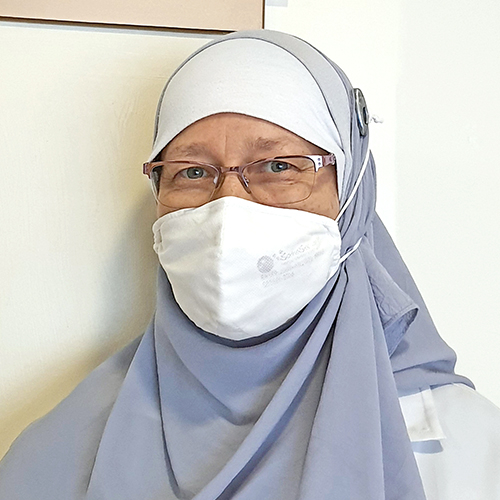

Evelyne Ruf is a family physician from France, and an International Board Lactation Consultant (since 1993). More than 25 years ago, she shifted to the United Arab Emirates (UAE), working for the Ministry of Health, in Sharjah MCH Center. She opened there the first Lactation Clinic in the UAE, with the support of volunteers from Breastfeeding Friends (BFF), which she had co-founded.
Five years ago, the Lactation Clinic has been shifted to the Family Health Promotion Center, where it continues to offer, to a very cosmopolitan population, skilled lactation support as well as assessment and release of tethered oral tissues.
A member of the National Breastfeeding Committee, Evelyne has been involved in the Baby-Friendly Hospital Initiative as a lecturer, trainer, adviser and assessor. Her workplace became the first Baby-Friendly Health Center in the UAE and received the IBCLC Care Award (community category) in 2015.
She has also been actively involved in the Sharjah Baby-Friendly Emirate Campaign, a multi-sectorial initiative launched in 2012, and presented its achievements during Gold Lactation 4 years ago.
With her husband of 34 years, she is the proud and grateful mother of 5 grown-up breastfed children and the grandmother of 4 breastfed little ones.
Topic: The Sharjah Baby-Friendly Campaign: A Community-Based Model for Breastfeeding Promotion, Protection and Support - [View Abstract]
1. Describe the consequences of the situation encountered by asymptomatic Covid-19 mothers isolated without their infant.
2. List the components of the practical, clinical and emotional support needed by these mothers.
3. Explain ways to prevent the reoccurrence of such dramatic situations due to mistaken perinatal recommendations in time of pandemics.
“Hello, the Lactation clinic? Here is a nurse from Primary Health Care; we have a mother engorged in the hotel, can you help her?”…
After taking some time to understand this strange call, we embarked on a totally unexpected journey: trying to support 25 Covid-19 positive asymptomatic mothers, most of them isolated without their newborn. This happened between April and June 2020, in Sharjah, United Arab Emirates, as a consequence of the initial USCDC recommendations.
This presentation describes the intense practical, clinical and emotional support needed by these mothers to cope with their traumatizing situation, but also the silver lining of their resilience, the amazing power of peer support, and a new cooperation between health care providers from different facilities, and with lay supporters.
Further insight is provided by some research done in the UAE: an observational study from a hospital who has followed WHO recommendations, and a cross-sectional study among mothers from the community.
Lessons should be taken from the past, to prevent the repetition of decisions based on a distorted balance of benefit/risk, affecting so many families and their care providers globally.
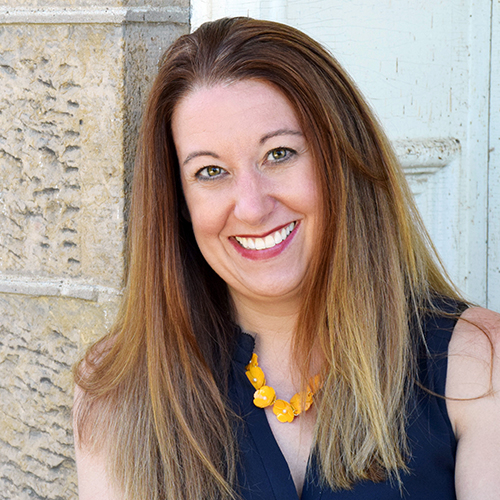

Gretchen Becker Crabb is an Occupational Therapist, Licensed Professional Counselor, and Endorsed Infant Mental Health Therapist. She is also a Certified Lactation Counselor, La Leche League Leader, and Brazleton Newborn Observation (NBO) trainer.
Gretchen’s passion is rooted in fostering lifelong relationships and connection through co-regulation in pregnancy and beyond. Her unique approach to lactation support and therapy is rooted in culturally attuned sensory, somatic, and trauma-informed mental health techniques.
Gretchen owns and operates a private practice in Madison, Wisconsin. For 21 years, she has provided developmental, trauma, feeding, and attachment support for tiny humans and their caregivers in birth to three, preschool, private practice, and peer group settings. Gretchen is an international speaker, reflective supervisor, and infant mental health consultant. In these roles, she offers compassionate, experiential, and reflective holding spaces for professionals. She is a proud United States Air Force spouse and mother of three boys.
Topic: Infant Mental Health: What Does It Look Like in Practice? - [View Abstract]
Topic: Scent-Sational Connections: The Role of Olfaction in Development - [View Abstract]
Topic: Sensory Processing and Breast/Bodyfeeding: Using Co-Regulation to Support the Feeding Relationship - [View Abstract]
Topic: Vestibular Processing: Using the Sixth Sense to Support Lactation and Parent/Infant Relationships - [View Abstract]
1. Participants will define the interpersonal and neurobiological functions of the vestibular system.
2. Participants will develop their observational skills to identify how vestibular processing may be playing a role in the quality of feeding in the body/breastfeeding dyad.
3. Participants will describe vestibular strategies to support relationships and development in body/breastfeeding dyads.
The body’s ability to process sensory information provides the basis of all function. Interestingly, our most foundational sense of movement is often overlooked as a component of lactation support. In this presentation, we will tie together research in neurology, primitive reflexes, mental health, and sensory integration to demonstrate the significant impact vestibular function has on the quality of lactation and infant/caregiver relationships. Participants will enhance their observational skills and explore ways to provide support for body/breastfeeding dyads using a vestibular processing perspective. Experiential activities will offer participants the opportunity to play with movement and reflect on personal experiences to enhance self-awareness and compassionate care.


Indira has been involved in birth and breastfeeding support for the past 15 years. As a clinician IBCLC, she leads the Specialist Breastfeeding Clinic which is part of the Merton Health Visiting team (Central London Community Healthcare NHS Trust). This Clinic is for complex breastfeeding dyads and by GP/HV/RM referral only. Indira has been awarded the National Institute for Health Research Fellowship (2021-2022) as part of the ARC NWL Improvement Leadership programme. Her project examines how to offer more skilled breastfeeding and lactation care in the NHS nationally. As an Educator and the lead Lecturer of the Breastfeeding London Course, she has been training future IBCLCs for the past 10 years. Indira's roles as Clinician and Educator have led her to the path of research. As the Director of the Centre for Breastfeeding Education and Research, she has published several articles in leading international peer-reviewed breastfeeding and human lactation journals. She has also served La Leche League Great Britain for the past 13 consecutive years.
1. Describe the basic anatomical features of Craniofacial anomalies including cleft lip, cleft palate, and cleft lip and palate.
2. Describe lactation supportive techniques which enhance breastfeeding, maintain lactation and help transition towards breastfeeding post-surgery.
3. Explain what Assisted Nursing is and how it can be used safely with some breastfeeding dyads
4. List sources of information for parents with Craniofacial anomalies.
Craniofacial anomalies (CFA) are a common anatomical malformation that affects the craniofacial region; they present either as cleft lip (CL), cleft palate (CP), or cleft lip and palate (CL/P) with varying degrees of severity. The incidence depends on the population’s ethnicity and geography. Infants with CFA can experience feeding difficulties either at the breast or at the bottle because they can have issues with their suck, swallow, breathe sequence and milk transfer.
This presentation will provide an overview of the anatomy of CFA. Techniques on how best to support families with CFA infants who wish either to breastfeed, maintain lactation or transition towards breastfeeding post-surgery will be discussed. Health care professionals involved in the care sometimes lack the expertise of supporting breastfeeding and often only recommend maternal pumping and specialised bottles. There is limited research about feeding infants with CL/P directly at the breast.
A clinical case will be presented to illustrate clinical techniques and sequence of care.
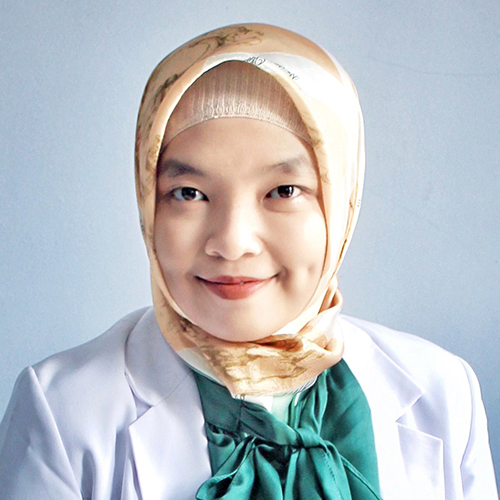

Dr. Dyah Febriyanti is a medical doctor, an IBCLC, a breastfeeding counselor, and a mother living in Jakarta, Indonesia. She has been working in hospitals since she graduated in 2012. She was facing many struggles to succeed breastfeeding her daughter for two years. She has been an IBCLC since 2017. She works with breastfeeding dyads in a team, called Praborini lactation team, consisting of all lady doctors in outpatient and inpatient care units. Concerning breastfeeding and nutrition in early life, she has published a semi-cookbook about complementary foods for breastfed babies and cooking videos to educate and help mothers feed their babies. She also has been working on scientific writing. She is a member of the Academy of Breastfeeding Medicine, International Lactation Consultant Association, and a trainer of the Indonesian Society of Perinatology.
1. Describe the importance of maintaining direct breastfeeding after six months until two years of life while ensuring the baby's adequate nutrition.
2. Describe the recommended complementary feeding practice for breastfed babies 6-24 months and how to achieve adequate nutrition.
3. Explain common misinformation and difficulties in complementary feeding practice among breastfeeding mothers and how to counsel on current best practice guidelines.
Breastfeeding for the first two years has physical and psychological benefits. The baby should be well-fed through exclusive human milk for the first 6 months, then given complementary feeding (or 'start solids') while continuing to breastfeed until weaning after two years. Inadequate complementary feeding may lead to nutritional as well as developmental problems. Due to a lot of misinformation many parents are unaware of current recommendations on starting solids, and it is often a time when poor understanding of the baby’s nutritional needs leads to unnecessary concern about intake of solids and subsequent weaning. Education is crucial during this period, and it is important for health care providers to be up to date on the latest best practice guidelines and skilled at counselling parents to avoid unnecessary weaning and nutritional deficits.
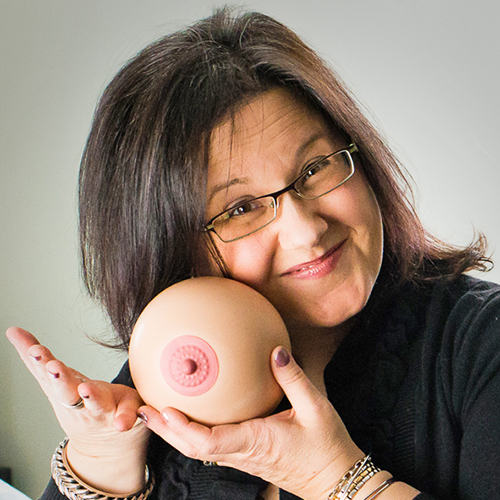

Jeanette Mesite Frem, MHS, IBCLC, RLC, CCE is an experienced childbirth educator, IBCLC-lactation consultant and retired birth doula. She started her career working with families while serving as a Peace Corps Volunteer in Côte d'Ivoire, West Africa in the early 90s. She loved that work so much she went on to receive a public health masters degree from Johns Hopkins School of Public Health, focusing her studies on nutrition for maternal and child health. Her two children were breastfed for more than 2 years each and Jeanette has experience pumping at work for both children and has supported more than a thousand families with feeding and pumping over the last 20 years.
Jeanette provides prenatal childbirth and breastfeeding classes at her office in Northborough, Massachusetts, as well as providing virtual and office feeding consultations. She also enjoys leading workshops for perinatal health professionals and mentoring those who work with families. If you have questions, feel free to email [email protected].
Topic: Pumping for Hospitalized Babies: 12 Keys to Supporting Families - [View Abstract]
1. List 10 smaller flange sizes and 6 types of silicone flanges they could try/suggest for their clients.
2. State the three main factors (FIT: flange, intensity and tempo) and multiple sub-factors that go into an effective pumping session.
3. Describe how to perform a flange fitting with a pumping client, using multiple flanges and inserts and assess which are the most appropriate for their client.
As lactation professionals, our overall goal is to help more babies get more human milk. Our work often includes supporting families with pumping. For many years, we have been told to "size up" for pump flange/breast shield size but many parents and lactation professionals are now finding that sizing down is much more effective for comfort, yield and pumping efficiency. But how small? Do silicone flanges work just as well as hard plastic? Does the shape of the flange influence milk removal and comfort? This session will show participants many different flanges sizes, several different types of flanges and video snippets of real parents pumping with some of them. The session will focus on how lactation professionals can actually do a flange fitting WITH a client, both in-person and virtually. Providing effective flange fitting services as a lactation professional can increase pumping comfort and significantly increase milk yield and extend the duration of lactation for many families.
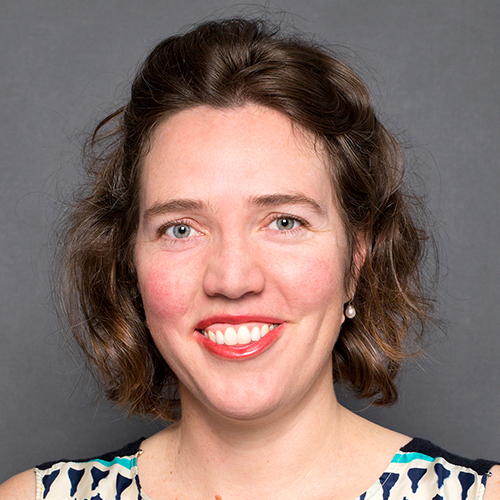

Katherine is a Senior Lecturer at School of Sociology, Australian National University. Katherine’s particular areas of interest include the sociology of reproduction and motherhood, perinatal medicine, lactation sciences, human milk banking and donation. Her current projects include an Australian Research Council funded study on maternal experiences of lactation after infant death, and a Mayo Clinic funded research project on the communication with families regarding periviable infant resuscitation.
1. Describe current views regarding mothers’ experiences of lactation after infant death and consequent bereaved lactation care needs.
2. Explain how to assess if their organization's policies and practices adequately respond to bereaved families’ lactation needs.
3. Describe practice tips and techniques to enable them to better inform and support bereaved families to make decisions about their lactation care and management.
Every day, around the world, many mothers are faced with the complex task of managing the initial onset, or continuation, of their lactation following a late miscarriage, stillbirth, neonatal or infant loss. This presentation explores findings from a multi-year, multi-site Australian study conducted with bereaved families and health professionals that confirmed the limited nature and scope of lactation care currently available to bereaved families.
This presentation will provide evidence of the need and benefit of approaching lactation after infant death using a biopsychosocial care framework, so that bereaved families are able to make informed decisions from the full array of lactation management options that may be available including: suppression, sustained expression, breastmilk donation or using milk as memento. The challenges involved in providing bereaved lactation care will be acknowledged and discussed. Health professionals will be advised on what information and support bereaved families need and want, how and when this information may be best provided and who may be best placed to offer lactation care to bereaved families.
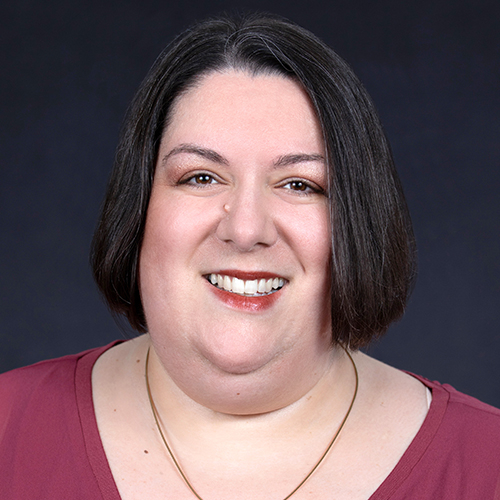

Kristin is a Licensed Clinical Social Worker and IBCLC in private practice in central NJ. Her practice specialties are low supply, maternal and infant mental health, and the intersection of ethnicity, sexual orientation, and gender in the care of the new family. She has spoken on various lactation, mental health, and equity topics for USLCA, the Lehigh Valley Breastfeeding Association Conference, the Appalachian Breastfeeding Conference, LPPEC, LC in PP, and for LLL of the Garden State. She designed and taught a training course on Mental Health First Aid for Perinatal Providers. She has been a featured speaker on several lactation related podcasts.
She is the mother of two children who nursed full term despite maternal IGT, and who are now 16 and 13. She is an anti racist LGBT+ activist, a member of transformative works fandoms, and makes fighting for a better world part of her daily life.
1. Describe the connection between trauma and eating disorders.
2. Explain how eating disorders present in the perinatal client.
3. Describe lactation specific challenges for clients with eating disorders.
4. Explain the process of screening for eating disorders and make appropriate referrals.
As lactation professionals, we see clients who are experiencing many challenges during the perinatal period. Clients with eating disorders are uniquely at risk, as are their babies. This presentation will educate the perinatal professional about how eating disorders present in the childbearing year and beyond. It will explore the connection between trauma and disordered eating, and teach how to be a trauma informed provider for eating disordered clients. It will discuss the specific and unique challenges the person with an eating disorder may have during lactation, including postpartum body image, elimination diets, and provider bias. The learner will gain the skills needed to screen for disordered eating and provide culturally humble and appropriate referral for congruent care.
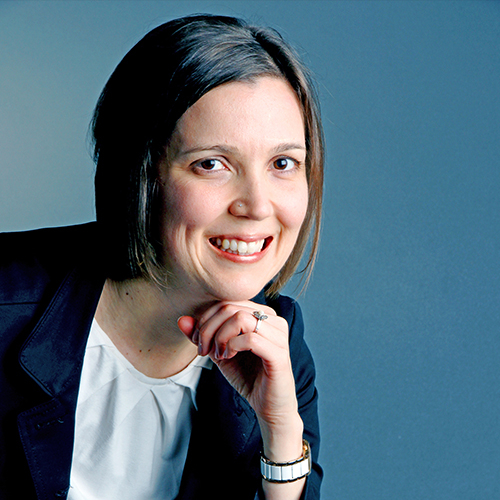

Laurie-Anne Muldoon has supported families both as an RN and as a Social Worker in a variety of hospital, public health and community mental health settings in the U.S. and Canada for the last 25 years. She has felt privileged to have companioned many women, families and groups through their experiences of loss, upheaval and life transitions. Her passion for perinatal mental health was reignited following her own birthing and breastfeeding experiences with her son 11 years ago. Laurie-Anne brings her compassion and respect for human dignity to her work with parents transitioning into the world of parenthood. She is founder of The Ottawa Integrative Mental Health Collective. A proud Franco-Ontarian, Laurie-Anne was born and raised in Ottawa Ontario. She currently works in private practice specializing in perinatal mental health, birth trauma and loss.
1. Describe breast/chestfeeding grief, including what elements discern it from other types of grief.
2. Explain some of the societal and cultural factors that influence breast/chestfeeding grief.
3. Describe meaningful approaches and interventions with clients who are experiencing breast/chestfeeding grief.
For many mothers/lactating parents, their reasons for deciding to breast/chestfeed are often grounded in an effort to do what’s best for themselves and their child. Unfortunately, the reality is that on the road to trying to be the best parent they can be, breast/chestfeeding doesn’t always work out in the way that parents had hoped. In fact, sometimes it doesn’t work out at all. This loss can be deeply felt by a parent for a long time.
This presentation will explore what is at the heart of breast/chestfeeding grief and what distinguishes it from other types of grief. Lactation providers will also learn about several socio-cultural factors that amplify grief after the loss of the breast/chestfeeding relationship. Additionally, attendees will learn about some of the emerging data related to how the pandemic has impacted this type of grief. And lastly, we will take a closer look at how to respond more effectively to clients who are experiencing the loss of a breast/chestfeeding relationship with their child.
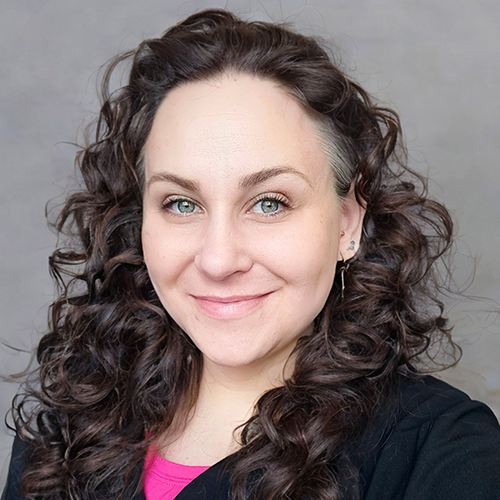

Megan Dunn is a board certified Lactation Consultant and Health Educator who views infant feeding from an anthropological perspective and through a sociological lens. Her experiences have run the gamut as a volunteer, peer-to-peer counselor, clinical IBCLC, and as an educator.
Currently she is the Breastfeeding Program Coordinator for a local WIC agency where she is coordinating a pilot program to equitably expand peer services. She is privileged to be a part of the excellent team at Legacy Health as a perinatal Educator. She also provides community lactation support as a home-visiting provider. Her goals are to support biological feeding norms and to offer practical and empowering solutions for dyads.
Professionally, her special interests include the fascinating world of our microbiome, empowering parents through Participant Centered and motivational approaches, and creating successful feeding solutions for complex cases. She is eager to collaborate on projects which focus on improving public policy and accessibility to culturally aware and trauma informed care for all perinatal families.
When she’s not pondering and working on all things human milk, Megan enjoys cooking, hanging out with her teenagers, going on nature walks, volunteering, and spinning tunes as a community radio host and DJ.
1. List the functions a healthy microbiome regulates.
2. Describe symptoms of microbiome imbalance.
3. Describe how to create and communicate an appropriate care plan for your patient/client according to your scope of practice.
The billions of unicellular organisms which form a symbiotic relationship with our bodies provide essential functions which regulate, modulate, and maintain homeostasis. The microbiome has an essential role in prompting a proper immune response, maintaining adequate digestion and metabolic function, managing inflammatory status, supporting mental health, and many more functions which are required for good health. Dysbiotic conditions during the perinatal period are common and impact the infant feeding relationship.
In this presentation, participants will learn about the functions of the microbiome as it relates to lactation and infant health as well as the consequences of dysbiosis and its impact on lactation/infant feeding.
Additionally, participants will learn how to address dysbiotic conditions within their profession’s scope. This presentation provides clinically applicable information and recommendations that participants can apply when providing lactation education and developing care plans.


Melissa Cole is a board-certified lactation consultant, neonatal oral-motor assessment professional and clinical herbalist in private practice. Melissa is passionate about providing comprehensive, holistic lactation support and improving the level of clinical lactation skills for health professional. She enjoys teaching, researching and writing about wellness and lactation-related topics. Her bachelor’s degree is in maternal/child health and lactation and her master’s degree is in therapeutic herbalism. Before pursuing her current path, Melissa’s background was in education and cultural arts, which has served her well in her work as a lactation consultant and healthcare educator. She loves living, working and playing in the beautiful Pacific Northwest with her 3 children.
Topic: Beyond Fenugreek: An Individualized Approach to Dietary and Herbal Galactagogues - [View Abstract]
Topic: Beyond the Basics of Latch: Support Strategies for Helping Babies when the Basics Aren’t Enough - [View Abstract]
Topic: Common Infant Digestive Health Concerns and Useful Support Strategies - [View Abstract]
Topic: Connection and Care: Virtual Support for Tongue-Tied Infants - [View Abstract]
Topic: Feeding is Movement: Activities for Supporting Optimal Infant Oral Function - [View Abstract]
Topic: Infant Gut Health: Common Concerns and Useful Support Strategies - [View Abstract]
Topic: Infant Oral Assessment: Exploring Anatomy and Function Beyond the Frenulum - [View Abstract]
Topic: Low Milk Production Detective Work: Assessment and Care Plan Considerations - [View Abstract]
Topic: New Thoughts on Infant Pre and Post-Frenotomy Care - [View Abstract]
Topic: Placenta Medicine as a Galactogogue: Tradition or Trend? - [View Abstract]
Topic: Thinking Critically About the Use of Clinical Lactation Tools - [View Abstract]
Topic: Will It Hurt? Frenotomy Aftercare Strategies to Optimize Healing Outcomes for the Newborn - [View Abstract]
1. List at least 3 reasons milk production many be compromised.
2. Describe at least 3 diagnostic tools and assessment techniques for identifying low milk production etiology.
3. Explain at least 3 ways to evaluate if care plan strategies are working for milk production optimization and the parent.
Concerns about low milk production can be frustrating for parents and clinicians alike. There are many reasons milk production can be compromised. How can lactation and health professionals best assess the root causes of the production issue at hand and suggest targeted, sustainable ideas? This presentation will help clinicians think about the ‘detective work’ needed to help provide personalized care. Through interactive case studies, participants will critically-think about assessment and care plan strategies for the families in their care that are struggling with low milk production.
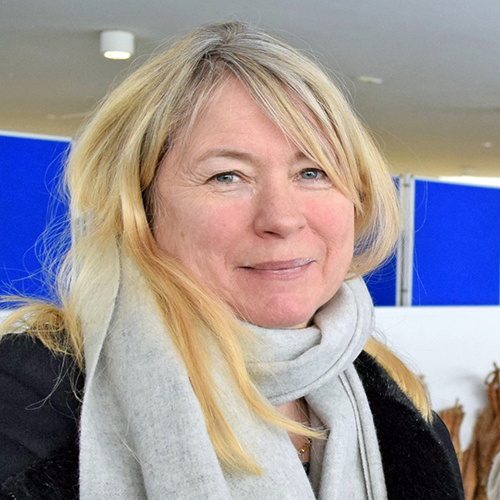

Merete Eggesboe, MD and an environmental epidemiologist at the Norwegian Institute of Public Health, is dedicated to understanding the role of the microbiome and environmental toxicants in children’s health. In order to do so she initiated the prospective HUMIS & NoMIC birth cohorts, encompassing more than 2600 mother-child pairs where the gut microbiome and toxicant exposure has been mapped in human milk and fecal samples. She has now followed them for 18 years and the longitudinal extensive data collection provides a wealth of research opportunities. It has also been linked to the Norwegain Patient Registry where all specialist diagnosis set on all research subjects are available. The focus so far has been on understanding their role in reproductive health, growth/obesity, neuropsychological functioning and vaccine immune responses. Recent studies have also looked at how toxicants in human milk may affect the infant’s microbiome. And vice versa: how our gut microbiome affects the metabolism of toxicants. She has been cited >6000 times over the last 5 years and has an h-index of 51 and has published more than 100 peer-reviewed papers. She is a popular speaker, leads several prestigious Norwegian Research council programs and participates in several EU projects.
2: Describe the current research on DDE and dioxin in human milk and obesity.
3. Describe the current research on environmental contaminants in human milk and ADHD.
According to a recent WHO/UN report, synthetic chemicals are a threat to human health. Persistent Organic Pollutants (POPS) are of special concern to humans since they bioaccumulate and biomagnify. Species on the top of the food chain pyramid such as humans are thus among the most heavily exposed. POPS is a group of chemicals compromising PCBs, DDT, Dioxin, Organic Pesticides, flame retardants, as well as the more recent contaminants perfluorinated compounds. They are ubiquitous in air, water and soil, food and humans. In spite of DDT being forbidden more than 40 years ago, both DDT and its metabolite DDE, are still found in breastmilk. This demonstrates the long legacy of these chemicals. The child is exposed to the mother's accumulated levels while in the womb since most of these chemicals pass to the uterus unrestricted, and through breast milk. In spite of declining levels of forbidden POPs we demonstrate that perinatal exposure to POPs are associated with adverse effects on infant health. Large multi-cohort studies encompassing many thousand mother-child pairs report adverse effects of these chemicals on growth and neurodevelopment, with an increased risk of obesity and behavioral disorders among those most heavily exposed.
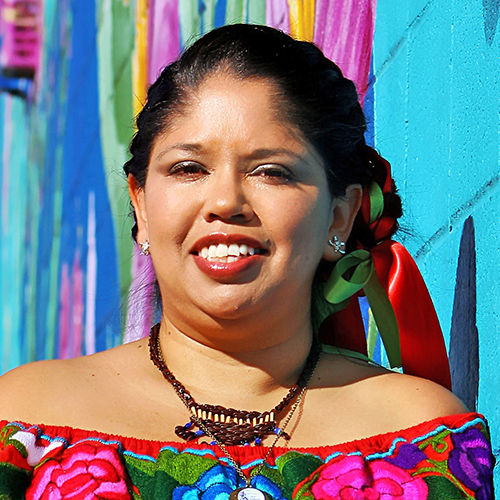

Monica Esparza is currently the Executive Director of the New Mexico Breastfeeding Task Force. She is a trained Certified Lactation Counselor and Community Interpreter who previously served families as a breastfeeding peer counselor for more than 10 years, providing peer-to-peer support to lactating families through the Department of Health Women's, Infant & Children's program both individually and in the hospital setting. She participated as a Leader in the Health Connect One Birth Leadership Academy and the NM Women of Color Leaders in Non-profit. She has served on different boards and currently sits on the National College of Midwifery Board and the New Mexico Certified Nurse Midwives Board. As a Mexican, Immigrant woman living in the south valley of Albuquerque, she brings a grassroots community approach and an equity lens into her every aspect of her work. She understands the importance of centering families and Black, Indigenous and People Of Color as a crucial step into achieve birth equity. She enjoys hiking and gardening with her husband and 2 children.
1. List two ways that home visitors can help bridge the gap in lactation care and improve breastfeeding/chestfeeding outcomes.
2. Explain the importance of supporting the BIPOC community to access higher lactation education.
3. List 2 steps that can be taken to increase lactation support in your community.
For low-income, immigrant, and rural families and their infants, access to lactation care is a critical need at one of the most vulnerable times of a child’s life. A root cause of this significant gap is the lack of lactation professionals and lactation-support training for healthcare professionals and home visitors. Knowing that home visitors are critical for families, the New Mexico Breastfeeding Taskforce (NMBTF) conducted a survey in 2020 to ascertain how to help increase home visitors’ knowledge and confidence about lactation issues so they can better support families. The survey results indicated that only 42% of home visitors had ever attended a breastfeeding class and that 100% of those surveyed could benefit from the support of lactation professionals in the communities they serve. In order to address this gap, NMBTF developed a combination of the Home Visitor Lactation Support Program and the Certified Lactation Counselors (CLC) Training programs for Lactation Education and Support Expansion in NM. First, NMBTF is piloting comprehensive lactation training for home visitors that addresses the basic lactation education they need to support the families they serve. The training program is evidence-based and includes culturally sensitive parent education, knowledge about latch and positioning, and guidance for accessing related local community resources. NMBTF partnered with home visiting programs to provide lactation education to their home visitors. Second, NMBTF worked to recruit women of color for the CLC training and provide financial aid. As CLCs, they will then be able to provide a network of expanded and enhanced lactation support in the underserved communities they serve, for their clients, and act as a resource to other home visitors.
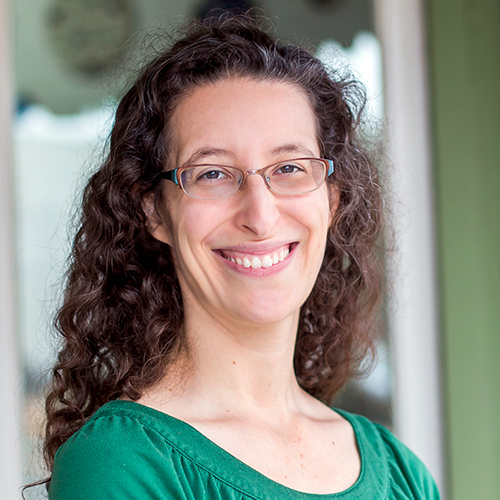

Rebecca began her lactation journey with her undergraduate senior thesis evaluating a breastfeeding education program. After working as a doula and childbirth educator, she decided to pursue a Master’s in Public Health in Maternal and Child Health. There, she was also in the first class of the Mary Rose Tully Training Initiative, a Pathway 2 IBCLC training program. After graduating, she first worked full time as an IBCLC in a large academic hospital. She then became the Director of Lactation Services at a busy freestanding birth center. After making the move to a new state, she went into private practice part-time, and expanded her focus on a longtime passion: providing education for IBCLCs, lactation trainees, and health care providers. She also has special interests in research, support for the LGBTQ+ community, and coalition-building to advance and support IBCLC services.
1. List 3 ways accurate, thorough charting can improve patient care.
2) Name 4 key components of a lactation note.
3) Describe how to chart when a patient disagrees with the plan of care.
Many lactation consultants enter practice without ever being fully oriented to lactation-specific note-taking/charting. If you come from a peer counseling background where formal medical charting wasn’t used; a health care professional background that didn’t focus on lactation; or you’re an IBCLC who has been in practice for a while and is looking to level up your note taking, this talk is for you. We will discuss three common challenges: making charting something that improves your patient care (instead of just being a chore); documenting in difficult clinical and legal situations; and balancing your visit time between note-taking and interaction with patients. And we’ll practice with some real-life scenarios to put our skills into practice.
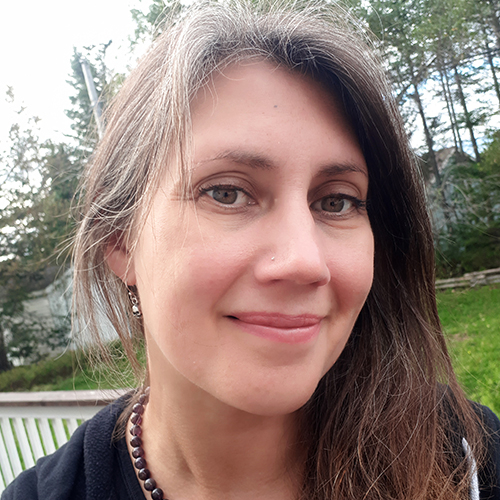

Rosann Edwards is an Assistant Professor in the Department of Nursing and Health Sciences at the University of New Brunswick Saint John, an experienced front line public health nurse, and lactation consultant. She is also a third-degree karate black belt, and mother of boys. Rosann’s research and community work focuses on breastfeeding, the transition to motherhood, maternal satisfaction with breast/infant feeding, mothering in the shelter system, and empowering vulnerable populations of women and their children. She is the co-editor of the recent Demeter Press Anthology Breasts across Motherhood: Lived Experiences and Critical Examinations.
Topic: Supporting Older First-Time Mothers with Breastfeeding and Becoming a Mother: Insights for Clinical Practice - [View Abstract]
2. Following this session participants will be able to describe factors affecting the decision-making process of the first-time mothers >35 years of age who participated in our study surrounding infant feeding practices.
3. Following this session participants will be able to explain the role of knowledge, control, trust, and ownership in both early breastfeeding and transition to motherhood for first-time mothers >35, and how health care providers can effectively support this demographic in clinical practice through mother-centred and flexible interventions.
Mothers 35 year of age or older are the fastest growing demographic of new mothers in many developed countries, & a steadily emerging global trend. The quality of a mother's breastfeeding experience has the potential to affect breastfeeding duration and factors that promote healthy maternal-infant attachment, infant growth and development, and maternal mental health. There is a lack of understanding of how older first-time mothers make decisions about breastfeeding and mothering. Learn more about new research that looked to answer the research question ‘What factors affect how first-time mothers >35 years of age make decisions about breastfeeding and the motherhood in the first six months postpartum?’ The findings provide a framework to work in partnership with older first-time mothers to enhance positive breastfeeding experiences, adaptation to motherhood and positive mental health outcomes through strategies that promote resiliency and shared decision-making around early postpartum care, and breastfeeding/infant feeding supports. Key components include helping mothers identify what satisfaction with breastfeeding is for them, encouraging increased levels of knowledge, control, trust and ownership, supporting them in redefining their core self, and providing realistic, evidence-based information.
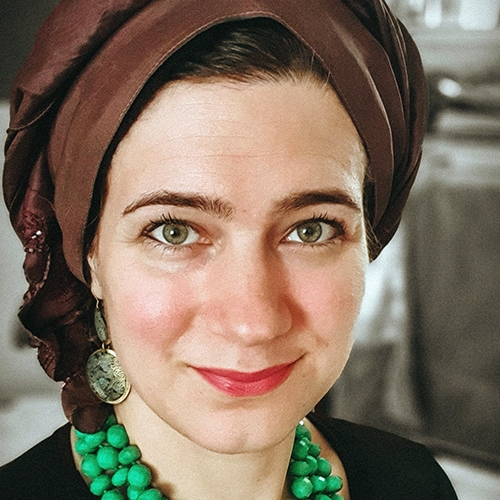

Zainab Yate is a Biomedical Ethicist, with a specialist interest in infant feeding. Zainab is Vice Chair and named qualitative lead on a paediatric flagged Research Ethics Committee Panel for the Health Research Authority (HRA) in the UK, reviewing research protocols for over a decade. Zainab's previous working background is in Public Health and Commissioning the National Health Service (NHS) in the UK. She had also been a volunteer breastfeeding peer supporter with the NHS for a number of years, is the owner-author of the resource site for mothers and healthcare practitioners on Breastfeeding / Nursing Aversion and Agitation and author of "When Breastfeeding Sucks".
Topic: Breastfeeding / Nursing Aversion and Agitation (BAA) in breastfeeding mothers - [View Abstract]
Topic: Research Ethics & Infant Feeding: How to Utilise the Four 'D's of a Brief Assessment - [View Abstract]
1. Describe the primary principles of research ethics and application of these, and how to review studies in the field of breastfeeding, lactation and infant feeding.
2. Explain how to use the '4 D’s of brief assessment’ to assess a research protocol or peer review published paper, and the importance of transparency of Declarations of Interests in research.
3. Describe the impact of the gap of participant enrolment in research as it pertains to pregnant and breastfeeding women, and the impact of this on our field literature.
Research ethics institutions protect the rights, safety, dignity, and well-being of research participants, and also have a duty to ensure ‘good’ research. Conducting poor research is unethical, and there are many studies in the field of breastfeeding and lactation that have been challenged when published, simply because their findings and results are, at best, incorrect. Proper definitions, project design and industry conflict of interest are important factors, and these can be critiqued and challenged at the ethical review stage.
Participants will learn how to use the method of the '4 Ds of a Brief Assessment' to scrutinise the research questions, definitions of words used, disclosures and even the research methodology to decide if a study will have both scientific and ethical merit in the field of breastfeeding and lactation. If you are a donor, an applicant, a manager or a researcher you need to be aware of the process of ethical review of research protocols, the possibility of specialist review, and also of how to sift through published studies that have questionable study designs, and the findings.
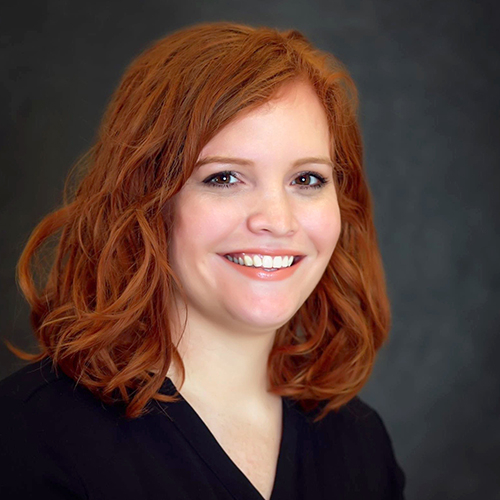

Kelsie Barta is an International Board Certified Lactation Consultant (IBCLC) who lives in Richmond, Texas with her spouse and two young children. She is currently pursuing a Doctorate of Philosophy in Nursing Science with Texas Woman’s University, with a primary research interest in lactation. She occupies her time with various part-time endeavors, including working as a Family Nurse Practitioner, a Clinical Nursing Instructor for nursing students in their maternal child health and pediatric clinical experiences, lactation consulting, and volunteer work with an emerging nonprofit maternal health organization in Houston, Texas. Her experiences with lactation are dynamic. Professionally, she has worked with breastfeeding/chestfeeding dyads in a postpartum hospital unit, through outpatient clinic visits, and via antenatal education. Her personal experiences include breastfeeding her children, serving as a resource to friends and family, and generally being “plugged in” to how lactation and lactation consulting may be perceived among people her age. She is passionate about empowering parents to reach their infant feeding goals, equitable access to lactation care, and health policy.
1. Name ethical guidelines that apply to the provision of lactation support in a hospital setting.
2. Describe the different perspectives parents and health professionals may have on ethical issues in lactation care.
3. Describe recommendations for incorporating principles of ethics into early postpartum lactation support.
Health professionals that interact with birthing parents and their infants in the first few days of life are uniquely positioned to impact lactation. In the context of the maternal guilt, shame, and stigmatization that can accompany infant feeding decisions, lactation professionals have an obligation to provide ethical care. This presentation will review the ethical guidelines of autonomy, nonmaleficence, and justice in the context of lactation support in the early postpartum period. Participants will be presented with strategies to mitigate harm, promote autonomous decision-making, and increase equity in lactation care. Based on these ethical principles, the extent of lactation promotion and language considerations will be discussed, as well as an in-depth look at the health professional’s ethical responsibilities when encountering cessation of exclusive human milk feedings.
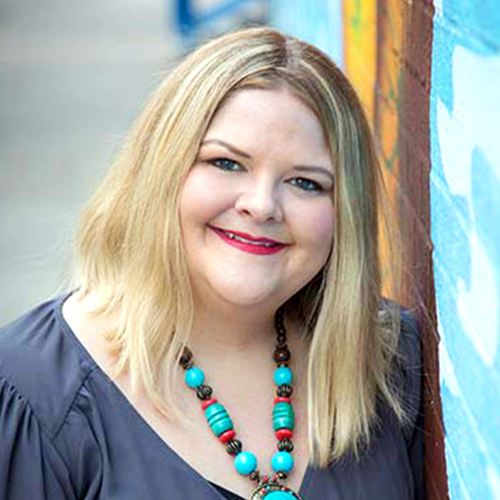

Stephanie Wagner, "Steph", is a Registered Nurse of 20 years, her first 13 years working Labor & Delivery in various hospitals in Virginia, California, and New York, working as a Travel Nurse for many years. Steph graduated from James Madison University in Virginia in 2001 with her BSN. She became a Certified Lactation Educator in 2012 and an International Board-Certified Lactation Consultant in 2014. After working in the hospital setting for 18 years, she now works solely as a Lactation Consultant in Private Practice. Her Private Practice, EverLatching Love, started in 2015 in NYC. EverLatching Love provides Breastfeeding/Chestfeeding/Bodyfeeding support and education by way of home visits and virtual consultations. Steph is the current Treasurer of the New York Lactation Consultant Association (NYLCA) and a member of the United States Lactation Consultant Association (USLCA) as well as the International Lactation Consultant Association (ILCA). She has been featured in Romper.com, nymag.com, the Strategist, TLC the TV network, and other media outlets such as the Breastfeeding Outside the Box podcast series. She teaches part time for Evergreen Perinatal Education, proudly educating new lactation professionals entering our field. She speaks at conferences and to groups across the Country on best practice when working with LGBTQ+ families who may use the language and action of Chestfeeding or Bodyfeeding their babies. Making sure healthcare is always aware of Diversity, Equity, and Inclusion (DEI) for all persons is a pilar of Steph’s work. Steph is a proud Certified OutCare Healthcare Professional as of March 2020 and is very proud to be featured on OutCare Health’s OutList of Medical Professionals. She was privileged to speak at the New York Coming Out Conference, the first ever International Transgender Conference in NYC, in October 2019. The conference had a big emphasis on healthcare and Steph presented on Breastfeeding/Chestfeeding/Bodyfeeding to the Transgender and Non-Binary community in attendance. She is constantly learning about Queer culture and advances in human lactation, and she works hard to find the best ways to intersect them for inclusive care.
1. Describe some of the history of the LGBTQ+ community in Healthcare and why this is important to meet the unique needs of these families.
2. Describe current language that the LGBTQ+ community uses (prefixes/pronouns/inclusive terms) and explain how to use their language in a respectful and appropriate way while providing lactation care.
3. List tools and resources to use as a Lactation Professional to make sure LGBTQ+ families recognize
themselves in your outreach and are fully seen, heard, and supported.
This presentation will provide the learner with further knowledge about the current needs of the LGBTQ+ community in the context of healthcare, and particularly as it pertains to breastfeeding/chestfeeding/bodyfeeding for all families who desire to feed their infant/child in this way. Participants of this education will learn about some history of the LGBTQ+ community within healthcare, appropriate inclusive language and its critical relevance within the LGBTQ+ community, and will learn about tools and resources available to feel more confident when taking care of a family or a parent who identifies as a LGBTQ+ human.
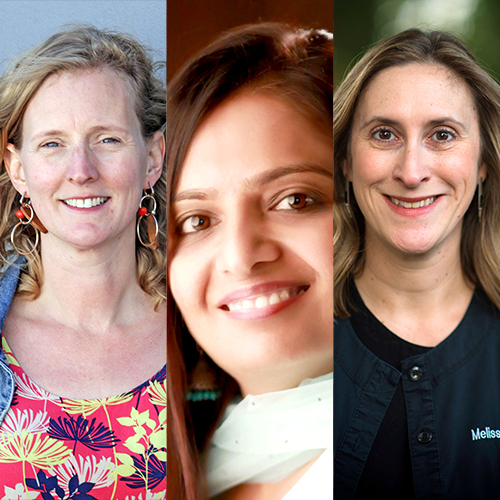

Melissa Cole is a board-certified lactation consultant, neonatal oral-motor assessment professional and clinical herbalist in private practice. Melissa is passionate about providing comprehensive, holistic lactation support and improving the level of clinical lactation skills for health professional. She enjoys teaching, researching and writing about wellness and lactation-related topics. Her bachelor’s degree is in maternal/child health and lactation and her master’s degree is in therapeutic herbalism. Before pursuing her current path, Melissa’s background was in education and cultural arts, which has served her well in her work as a lactation consultant and healthcare educator. She loves living, working and playing in the beautiful Pacific Northwest with her 3 children.
Anna Le Grange is an International Board Certified Lactation Consultant, Registered Paediatric Nurse, Mindfulness teacher and Author. She has worked with new families for over 20 years in a variety of clinical roles. Anna brings her passion for psychology, neuroscience and mindfulness into her lactation support work and facilitates other professionals to incorporate emotional well-being tools into their own lactation practice.
Mother to 3 children, Anna breastfed her 3rd child following breast reduction surgery and experienced first-hand, the emotional challenges that so often relate to infant feeding complexities. She used her personal experiences alongside mindfulness and lactation knowledge, to create a toolbox of techniques for breastfeeding families, which she includes in her courses and book, The Mindful Breastfeeding Book. Anna believes whole-heartedly in prioritising calm and connection within our breastfeeding support practices, both for our clients and ourselves.
Anna is currently studying for a MSc in Positive Psychology at Buckingham New University and has spoken at various events including the ILactation conference and Womanfest.
Dipti Shah is a Mother Support Group Leader - Lactation Counsellor since 1998 & Lactation Consultant since 2010. She was trained by BPNI Maharashtra Faculty & has been providing Lactation Counselling services in multiple Institutional Hospitals & small maternity homes in Mumbai for over 2 decades. She has wide experience in community advocacy & Individual Counselling in indoor, OPD, home and online settings. She is senior trainer for BPNI Maharashtra & participated as faculty in over 100 workshops in Seven States of India & for 5 batches of ’96 hrs of Lactation Specific Education’ for IBLCE preparation (2010-2021). She mentored many Lactation counsellors and consultants. She is a BFHI Assessor since 2001 & has trained two groups of ‘Traditional Massage Women’ in basics of infant feeding and childcare. She has extensively contributed to multiple training modules, presentations & videos for BPNI Maharashtra & Maharashtra Government & UNICEF. She is also office coordinator of BPNI Maharashtra since 2004. She participated in Expanded Global Breastfeeding Partners Meeting (GBPM) of WABA at Penang, Malaysia in 2010. She was felicitated with ‘Dr N.B. Kumta Award’ in 2016. She exclusively breastfed her son for 6 months and continued well into 2nd year.
2. Describe possible barriers to referral and potential solutions.
3. Describe strategies for working collaboratively with other care providers once a referral is made.
The care of breast/chestfeeding dyads is not always straightforward. With the potential for postpartum medical concerns in parent or baby, the potential for a parent needing mental health support and the possibility of a baby needing a type of feeding support that falls outside of the scope of practice or experience of a lactation professional, it’s important for care provides to know when to refer, how to navigate barriers to referral and how to work collaboratively with other care providers once a referral has been made. Our panel of expert speakers will be sharing their clinical knowledge and experience to address these issues and help lactation professionals with the practicalities of making referrals and working collaboratively to ensure optimal outcomes for their clients.
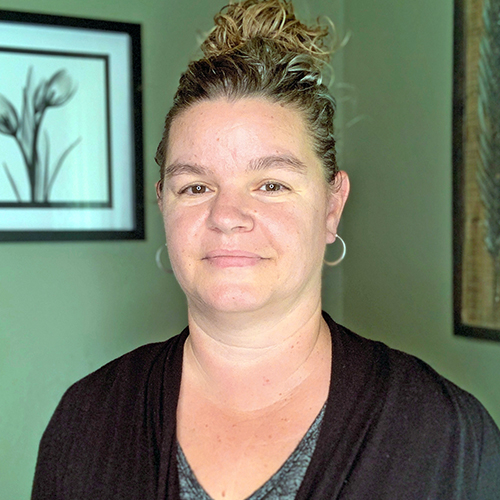

Christine Staricka is a Registered, International Board-Certified Lactation Consultant and trained childbirth educator. As the host of The Lactation Training Lab Podcast, her current role focuses on training and coaching current and aspiring lactation care providers. Christine created and developed The First 100 Hours© concept, an early lactation framework designed to support lactation care providers with the knowledge and mindset they need to help families optimize early lactation. Christine worked as a hospital-based IBCLC for 10 years and has over 20 years experience providing clinical lactation care and support. She provides clinical lactation care to families at Baby Café Bakersfield and serves as its Director. Christine recently completed 6 years of service on the Board of the United States Lactation Consultant Association (USLCA.) She holds a Bachelor's Degree from the University of Phoenix. She has been married for 27 years, lives in California, and is the proud mother of 3 amazing daughters.
Topic: Tongue-Tied and Troubled: A Breastfeeding Journey at Risk - [View Abstract]
Topic: Your Responsibility to the WHO Code: Evaluating Real-World Scenarios for Compliance - [View Abstract]
1. List 3 specific types of scenarios which are covered by the WHO Code.
2. Apply a rubric of WHO Code guidelines to evaluate components of a real-world case study of a company interacting with the public.
3. Explain 2 action steps to address violations of the Code; and identify 1 case study describing a real-world situation where a company acts within WHO Code guidelines.
The International Code of Marketing of Breastmilk Substitutes (WHO Code) exists to protect health during a vulnerable period of life. In the course of practicing health care in the service of families with babies and young children, health care workers of all disciplines will encounter situations which should be guided by the WHO Code. It is in the interest of families and health for all health workers to be aware of the WHO Code and what it requires, as well as to be able to evaluate a situation where a commercial entity is interacting with the public regarding infant and young child feeding. Using a rubric of WHO Code guidance, the participant will practice evaluating real-world case studies and determining whether or not they are in compliance with the WHO Code.
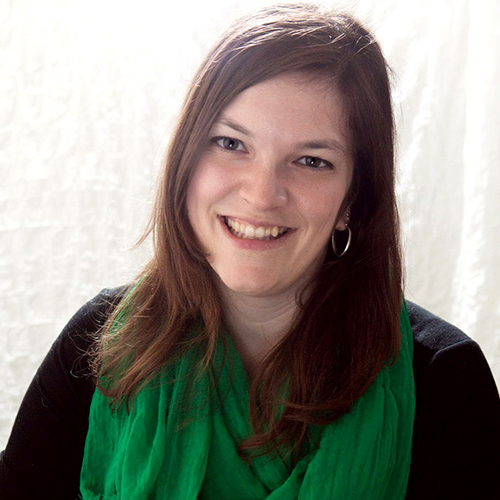

Julie Matheney knew when she was ten years old that she wanted to feed babies for a living. She earned her Masters in speech-language pathology and has worked with feeding and swallowing disorders for over a decade. While most people assume speech therapists teach children who stutter or work on ""r's and s's"", the bulk of her job is feeding and swallowing as part of a hospital based, rehabilitation team. The same things you speak with, you eat with! Over the past decade working in the NICU, she discovered her passion for working with breastfeeding families and became an IBCLC in 2018.
She transitioned out of the hospital in July 2021 and currently works full time in private practice as a lactation consultant in Los Angeles. She enjoys helping the whole family in the feeding process to meet their goals.
Her loving husband is always supportive of her in her vocational passions and was instrumental in launching her private practice. She has two young daughters, both of whom were exclusively breastfed until two years old.
Topic: Overcoming Challenges to Feeding: Supporting Parents with Physical, Mental or Socioemotional Differences - Part 1 - [View Abstract]
Topic: Overcoming Challenges to Feeding: Supporting Parents with Physical, Mental or Socioemotional Differences - Part 2 - [View Abstract]
(1) List the different types of differences and disabilities that impact breast/chestfeeding.
(2) Describe the challenges that lactating people with various differences and disabilities face during their breast/chestfeeding process.
(3) Describe adaptations to the environment to assist the lactating person.
(4) Describe support systems for lactation success.
For years we have learned how to support breastfeeding for the infant with differences and disabilities. There is a lack of education and support however for mothers/lactating parents who face these same challenges. Studies show parents with differences and disabilities are less likely to receive adequate prenatal care and breastfeeding assistance compared to those without disabilities. How do we support lactation for parents who have physical, mental, and emotional/social differences? Each type of difference or disability also has specific needs for adaptations, to the environment and to the tools we would use to facilitate position, latch, and lactation success. This session helps participants use critical thinking to ask the right questions, make adjustments to the environment, and create functional plans specific to the individual needs of the parent. The three domains we will be discussing are physical challenges, social/emotional challenges, and the neurodiverse.


Julie Matheney knew when she was ten years old that she wanted to feed babies for a living. She earned her Masters in speech-language pathology and has worked with feeding and swallowing disorders for over a decade. While most people assume speech therapists teach children who stutter or work on ""r's and s's"", the bulk of her job is feeding and swallowing as part of a hospital based, rehabilitation team. The same things you speak with, you eat with! Over the past decade working in the NICU, she discovered her passion for working with breastfeeding families and became an IBCLC in 2018.
She transitioned out of the hospital in July 2021 and currently works full time in private practice as a lactation consultant in Los Angeles. She enjoys helping the whole family in the feeding process to meet their goals.
Her loving husband is always supportive of her in her vocational passions and was instrumental in launching her private practice. She has two young daughters, both of whom were exclusively breastfed until two years old.
Topic: Overcoming Challenges to Feeding: Supporting Parents with Physical, Mental or Socioemotional Differences - Part 1 - [View Abstract]
Topic: Overcoming Challenges to Feeding: Supporting Parents with Physical, Mental or Socioemotional Differences - Part 2 - [View Abstract]
(1) List the different types of differences and disabilities that impact breast/chestfeeding.
(2) Describe the challenges that lactating people with various differences and disabilities face during their breast/chestfeeding process.
(3) Describe adaptations to the environment to assist the lactating person.
(4) Describe support systems for lactation success.
For years we have learned how to support breastfeeding for the infant with differences and disabilities. There is a lack of education and support however for mothers/lactating parents who face these same challenges. Studies show parents with differences and disabilities are less likely to receive adequate prenatal care and breastfeeding assistance compared to those without disabilities. How do we support lactation for parents who have physical, mental, and emotional/social differences? Each type of difference or disability also has specific needs for adaptations, to the environment and to the tools we would use to facilitate position, latch, and lactation success. This session helps participants use critical thinking to ask the right questions, make adjustments to the environment, and create functional plans specific to the individual needs of the parent. The three domains we will be discussing are physical challenges, social/emotional challenges, and the neurodiverse.
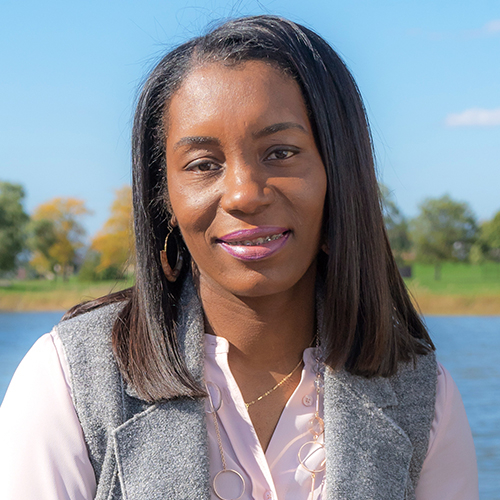

Stacy Davis is the Health Equity and Community Partnerships Manager for the National Women, Infant and Children (WIC) Association. Inspired by her personal and professional experiences, Stacy has focused her efforts on addressing health equities in Maternal Child Health, locally, nationally and internationally, especially as it pertains to black and brown families.
As the former executive director of the National Association of Professional and Peer Lactation Supporters of Color, Stacy established the organization as a brand and leader in the field- addressing racial inequity in lactation support and education, acting as expert panelist and collaborator with other leading organizations, and holding privileged organizations accountable and responsible for the health and wellbeing of communities of color. Additionally, she participated in the growth and expansion of equitable access to Pathway 2 lactation training programs at Historically Black Colleges and Universities, such as Johnson C. Smith and North Carolina A&T Universities. She co-developed and hosted a unique event of its kind- The Amazing R.A.C.E.- a safe space retreat for Maternal Child Health professionals and supporters.
Stacy is a graduate of Western Michigan University where she obtained her master’s degree in Public Health. She has received numerous honors including, but not limited a member of the Center for Social Inclusion’s First Food Racial Equity Cohort, IBCLE’s Spotlight, and the AHEAD in WIC Health Equity Champion. Stacy Davis is a United States Lactation Consultant Association Board of Director.
1. Describe how personal bias and learning style can inhibit positive lactation support and care.
2. Explain how positive rapport can establish a positive relationship with lactation parents.
3. Describe how to utilize parent-centered lactation support and care when communicating with and counseling lactating parents.
New parents do not anticipate a challenging journey when it comes breast-/chest-feeding. When things do not go as planned, parents are therefore often consumed by fear and uncertainty and look to professionals for support. Being the person guiding the steps of a new, lactating parent creates a challenge. How do you design a care plan which address the concerns of the parent(s) but also allows the parent(s) to act as a member of the team and the expert on what is best for them and their family in their current life circumstances? How do you foster self-efficacy, and self-empowerment in your clients to ensure that your plan of care is feasible and within the capacity of the parent(s)? Learn more about the importance of meeting parents where they are at to create a care plan which is mutual, feasible, and sustainable. This presentation will be a 60-minute Q&A session so bring your questions about how to approach communication and counselling to create a plan of care that really works for your clients and helps them to meet or exceed their infant feeding goals.
Accreditation
CERPs - Continuing Education Recognition Points
Applicable to IBCLC Lactation Consultants, Certified Lactation Consultants (CLCs), CBEs, CLE, Doulas & Birth Educators. GOLD Conferences has been designated as a Long Term Provider of CERPs by the IBLCE--Approval #CLT114-07. This program is approved for 29.5 CERPs. (26.5 L-CERPs, 3 E-CERPs)
CERPs are valid until 04/04/2025.
IBCLC Detailed Content Outline:
I. Development and Nutrition 9 CERPs
II. Physiology and Endocrinology 2 CERPs
III. Pathology 9 CERPs
V. Psychology, Sociology and Anthropology 5.25 CERPs
VII. Clinical Skills 19.5 CERPs
Dietetic CPEUs - Continuing Professional Education Units
Applicable to Dieticians & Nutritionists, this program is approved for 29.5 Dietetic CPEUs by the Commission on Dietetic Registration - the credentialing agency for the Academy of Nutrition and Dietetics.
Dietetic credits are valid until 04/04/2025.
Midwifery CEUs - MEAC Contact Hours
This program is accredited through the Midwifery Education & Accreditation Council (MEAC) and is approved for 29 Hours, the equivalent of 2.9 CEUs. Please note that 0.1 MEAC Midwifery CEU is equivalent to 1.0 NARM CEUs.
MEAC credits are valid until 04/04/2024.
If you have already participated in this program, you are not eligible to receive additional credits for viewing it again. Please send us an email to [email protected] if you have any questions.
Additional Details
Viewing Time: 8 Weeks
Tags / Categories
(IBCLC) Clinical Skills, (IBCLC) Development and Nutrition, (IBCLC) Education and Communication, (IBCLC) Equipment and Technology, (IBCLC) Ethical and Legal Issues, (IBCLC) Infant, (IBCLC) Pathology, (IBCLC) Physiology and Endocrinology, (IBCLC) Psychology, Sociology, and Anthropology, (IBCLC) Public Health and Advocacy, (IBCLC) Research, Baby-Friendly Hospital Initiative, Breastfeeding Advocacy, Breastfeeding Complications, Breastfeeding Support, Breastmilk / Human Milk, Complementary / Solid Foods, Ethics for Lactation Professionals, Full-term Breastfeeding, IBCLC & International Code on the Marketing of Breast Milk Substitutes, IBCLC / Lactation Consultants, IBCLC in Collaboration With Other Health Professionals, IBCLC in Private Practice, IBCLC Using Research, Inequalities & Breastfeeding, Infant Loss, Lactation & Breastfeeding, Lactation After Perinatal, Neonatal, & Infant Loss, LGBTQIA2S Families & Breastfeeding, Managing Milk Supply, Maternal Illness & Breastfeeding, Peer Support for Breastfeeding, Pumping & Milk Expression, Slow Weight Gain, The Newborn Microbiome, Trauma & Breastfeeding
How much time do I have to view the presentations?
- The viewing time will be specified for each product. When you purchase multiple items in your cart, the viewing time becomes CUMULATIVE. Ex. Lecture 1= 2 weeks and Lecture Pack 2 = 4 Weeks, you will have a total of 6 weeks viewing time for ALL the presentations made in that purchase.
- Time for viewing the talks begins once you purchase the product. For Live Webinars & Symposiums, the viewing period begins from when the live event takes place. Presentations can be accessed 24/7 and can be viewed as many times as you like during the viewing period.
What are bundled lectures?
- Presentations may be available individually or via a bundled package. Bundled lectures are a set of lectures that have been put together based on a specific category or topic. Some lectures will be available in both individual and lecture form, whereas others will be available only via a bundled lecture pack.
Will there be Handouts?
- YES! Each lecture comes with a PDF handout provided by the Speaker.
Some lectures include a Q&A, what does that mean?
- During our online conferences, presentations that occur live are also followed by a short 15 minute Question & Answer Session. The Speaker addresses questions that were posted by Delegates during the presentation. We include the recording of these Q&A Sessions as a bonus for you.
How can I receive a Certificate?
- If this presentation offers a certificate, once you are done viewing the lecture or the lectures within a bundle, submit your attendance record in order to be able to download your certificate. You'll be able to see which credits are offered for the lecture by hovering over the "Credits Available" link within the "Speakers & Topics" tab.
Professionals that selected this package also viewed

|
|

|


















